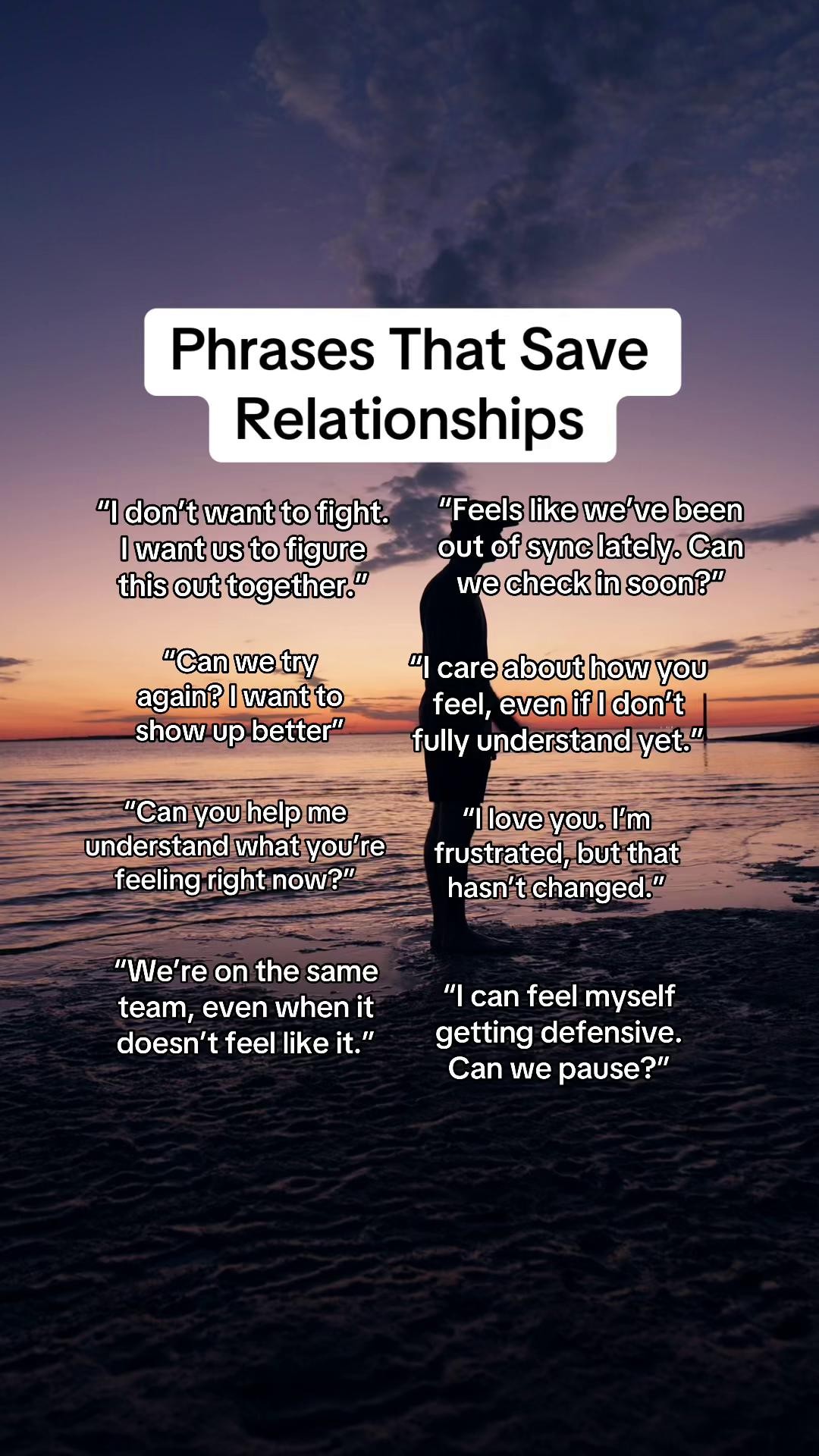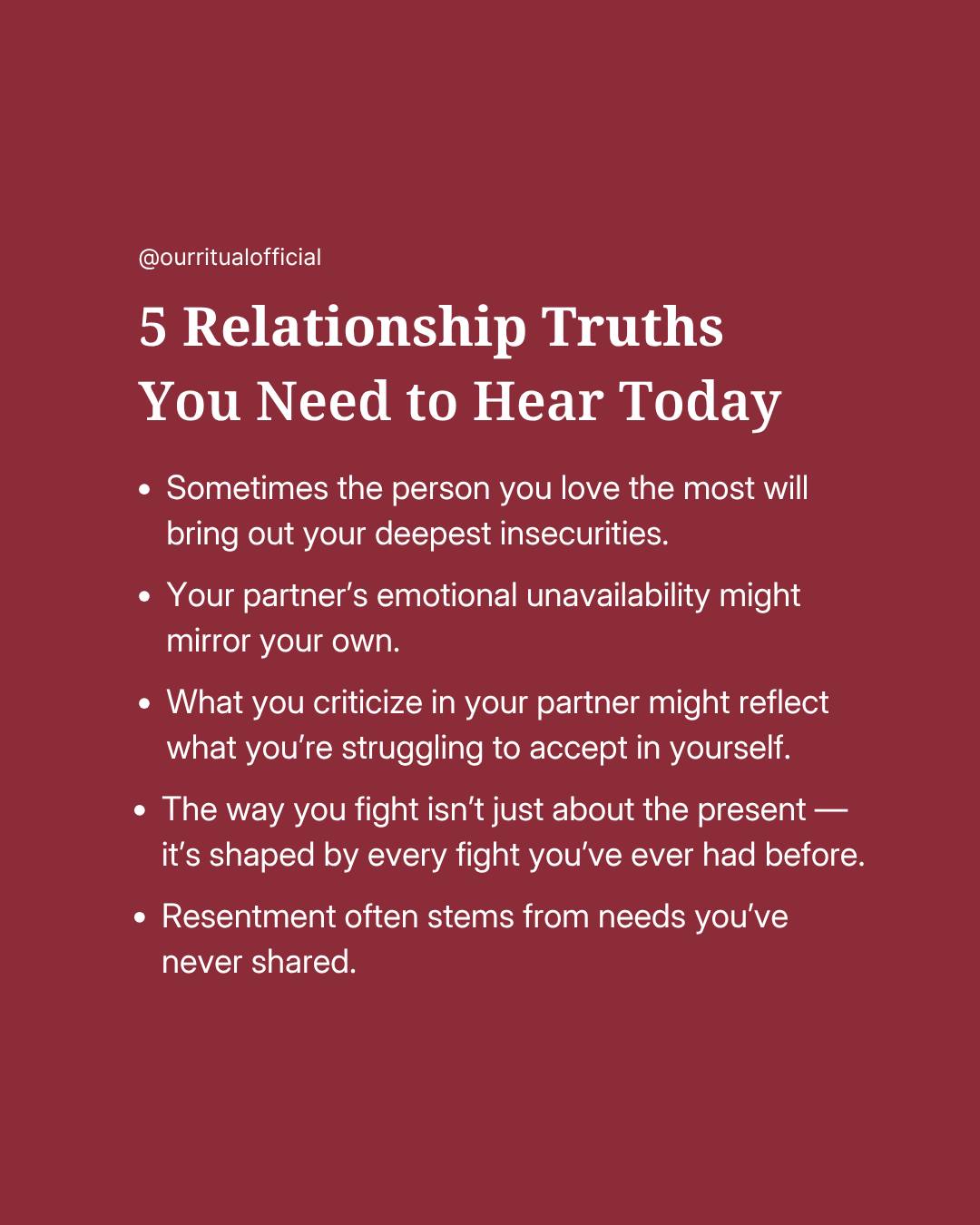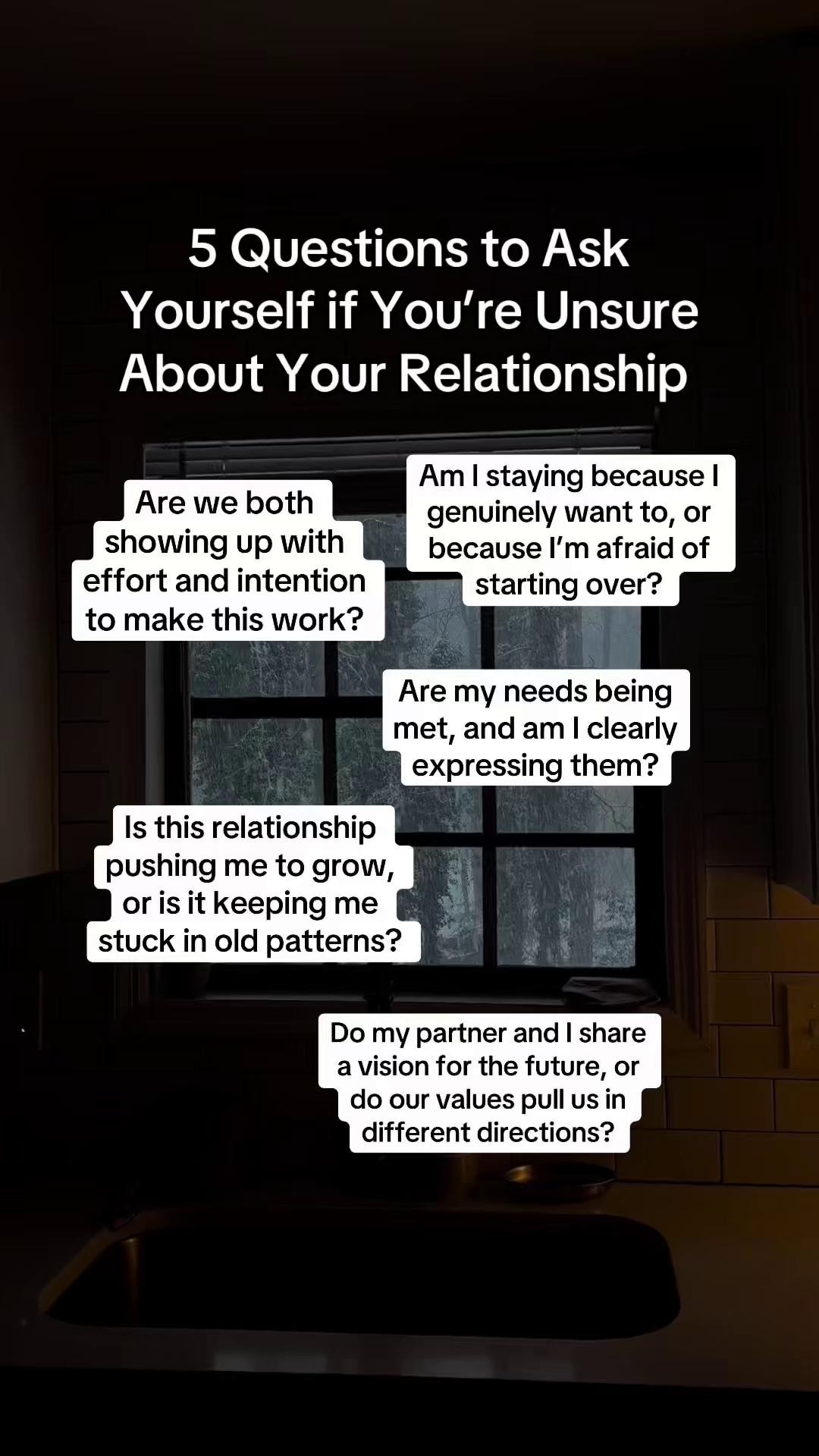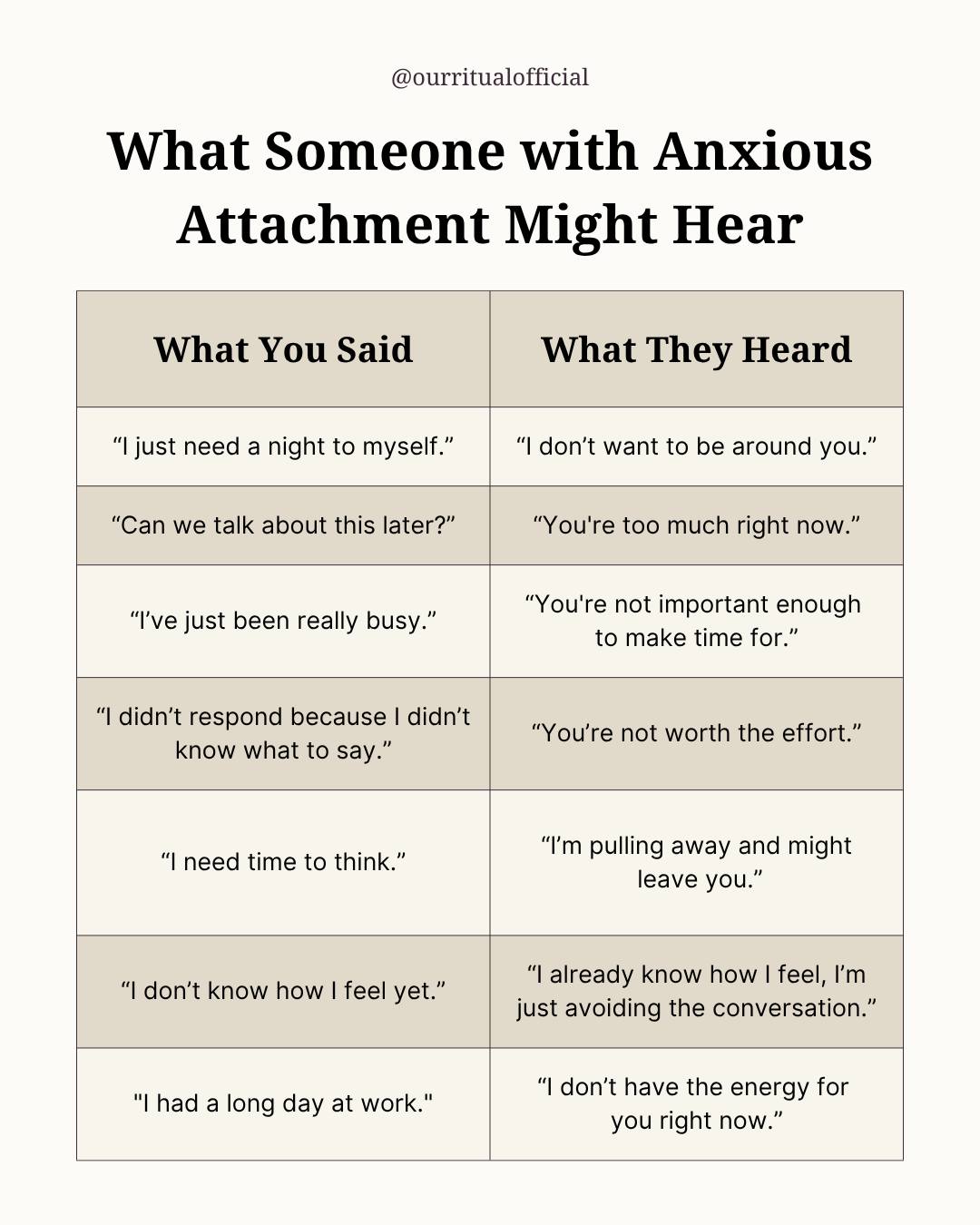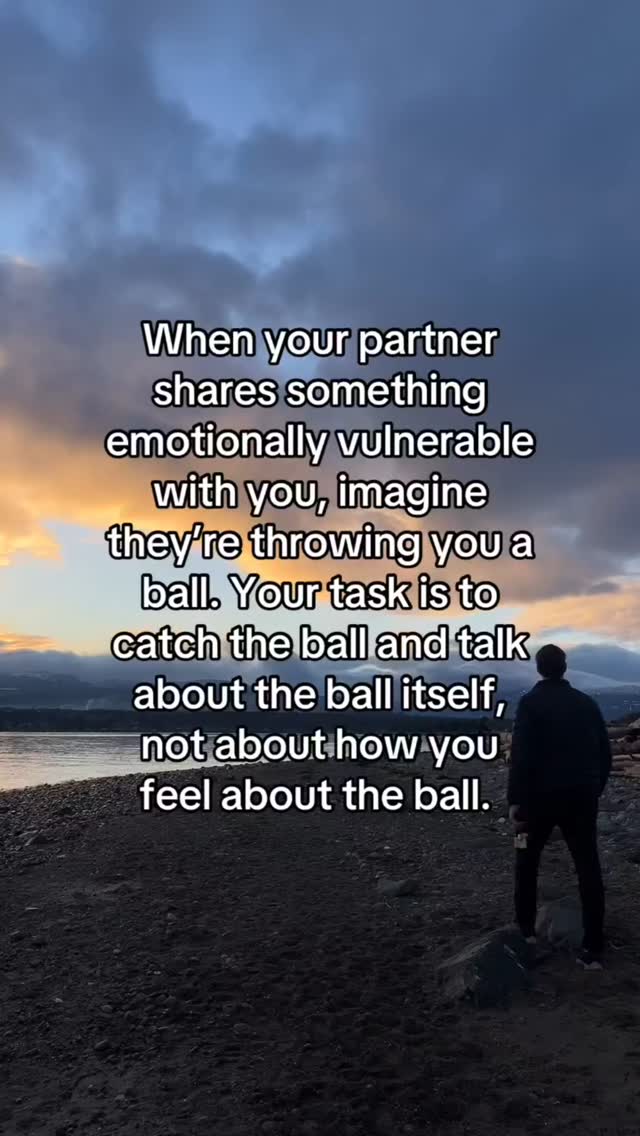Burnout Recovery: Relaxation Practices for Couples
Burnout in relationships is real, but recovery is possible. When stress, unresolved conflicts, and emotional disconnection take a toll, couples often feel distant, irritable, and detached. Relaxation practices can help rebuild intimacy, reduce stress, and restore trust.
Here’s how couples can start healing from burnout:
- Recognize the signs: Emotional detachment, constant irritability, and reduced intimacy are common indicators of burnout.
- Use relaxation techniques: Try deep breathing, progressive muscle relaxation, or guided meditation to lower stress and improve communication.
- Rebuild intimacy: Activities like couples’ yoga, synchronized breathing, or simple moments of physical touch (like hugging) can strengthen emotional bonds.
- Create shared moments of calm: Meditation, tech-free time, and leisurely hobbies like cooking or walking together can help couples reconnect.
- Communicate openly: Use “I” statements, listen actively, and discuss feelings without blame to rebuild trust and understanding.
Digital tools like OurRitual also offer expert-led sessions and personalized exercises to guide couples through recovery. Whether it’s through shared relaxation practices or honest conversations, taking small, intentional steps together can help reignite connection and strengthen your partnership.
How Relaxation Practices Support Burnout Recovery
Lowering Stress and Emotional Tension
When couples face burnout, their bodies often stay in a state of heightened alert, leading to physical symptoms that disrupt their ability to connect. Chronic stress can manifest as high blood pressure, a racing heart, shortness of breath, or ongoing muscle tension [2]. These physiological responses create obstacles that make open communication and emotional closeness harder to achieve.
Incorporating practices like box breathing and progressive muscle relaxation can help calm the nervous system, paving the way for healthier interactions. Stress often leads to withdrawal, irritability, and miscommunication, but regular use of relaxation techniques can break this cycle. Viewing stress as a shared challenge encourages teamwork. Techniques like guided imagery, where individuals visualize soothing environments, allow couples to develop a shared approach to managing future stress. When both partners feel calmer, they can rebuild the emotional foundation needed for deeper connection.
Restoring Emotional Intimacy and Trust
Burnout can weaken the emotional core of a relationship. Shared relaxation activities provide a chance to rebuild intimacy by creating moments of focused presence. These practices offer a safe space for vulnerability, free from the immediate need to resolve conflicts.
Physical touch is a powerful way to build connection. Simple acts like hugging and synchronized breathing not only reduce stress but also release bonding hormones like oxytocin, helping partners feel secure and close.
More intentional physical intimacy exercises, such as sensate focus, couples’ yoga, or massage, require open communication and attentiveness. These practices not only rebuild trust and closeness but also create a space for shared vulnerability, similar to the calm cultivated through joint stress-relief efforts.
Even more simple acts, like reading together in the morning or cooking side by side, can strengthen mutual understanding.
Building Shared Moments of Calm
In addition to reducing stress and rebuilding trust, couples benefit from intentionally creating regular moments of peace together. Recovery from burnout requires deliberate efforts to counteract prolonged tension. For instance, couples meditation can strengthen emotional bonds, improve communication, reduce stress, and deepen intimacy.
Similarly, couples massage can stimulate oxytocin release, fostering trust and affection while lowering cortisol levels, which supports clearer communication and mutual understanding. These shared activities can even synchronize partners' heart rates and breathing patterns, fostering a profound emotional connection.
Beyond providing immediate stress relief, regular relaxation practices strengthen emotional bonds, improve communication, and boost overall happiness.
Relaxation Practices That Work for Couples
Meditation and Mindfulness for Couples
Start small with just 5–10 minutes a day, gradually increasing as it becomes more comfortable for both of you [11]. The key is consistency, not perfection.
Choose a shared intention for each session - words like peace, connection, or strength can set the tone. This shared focus helps align your energy and creates a sense of unity. Pair this with synchronized breathing to deepen your connection. For an even more intimate experience, try an eye-gazing practice: hold gentle eye contact for a few minutes to strengthen non-verbal communication and build trust.
For something different, try descriptive meditation. Lie head-to-head with your eyes closed and take turns describing your sensations and thoughts [13]. This practice encourages vulnerability and keeps you connected through verbal sharing.
End on a positive note by expressing gratitude. Share one thing you appreciate about your partner after each session. This simple gesture reinforces affection and strengthens your emotional bond.
From mental relaxation, let’s move to techniques that help ease physical tension and promote a sense of calm.
Deep Breathing and Progressive Muscle Relaxation
Physical tension often builds up during stressful times, and these techniques can help you release it together. One effective method is box breathing: inhale for four counts, hold for four, exhale for four, and hold again for four. Practicing this rhythm together can create a sense of calm and synchronicity.
Progressive muscle relaxation is another great option. Starting with your toes, tense and release each muscle group, moving upward through your body. Spend 5–10 seconds on each area, noticing where you hold stress and consciously letting it go. Doing this as a couple not only helps with relaxation but also increases awareness of each other’s physical and emotional states.
These techniques can be done almost anywhere - before bed, during a lunch break, or even in the car after a long day.
Once physical relaxation is achieved, couples can explore gentle physical activities to further enhance their bond.
Couples' Yoga and Gentle Physical Activities
Partner yoga is a fantastic way to build trust, strengthen your bond, and improve overall well-being. Unlike solo yoga, partner poses require communication and cooperation, making it an excellent choice for couples looking to reconnect.
Start with simple poses that don’t require advanced flexibility. For example, try seated spinal twists back-to-back, which allow you to support each other while gently stretching your spines. Another easy option is partner breathing in a cross-legged position, where you can synchronize your breath and focus your energy together.
Verbal check-ins during practice are important to ensure both partners feel comfortable. These ongoing conversations build trust and show that you care about each other’s well-being.
Even short sessions of 15–20 minutes can make a difference. Consistency matters more than the duration, so even a quick stretch together can have a meaningful impact.
For a more informal approach, try activities like evening walks or light stretching before bed. These moments create opportunities for connection without added pressure, offering a peaceful way to transition from daily stress to quality time.
Shared Hobbies and Leisure Activities
Engaging in shared hobbies is another great way to relax and reconnect. Cooking together, for example, encourages teamwork and communication while rewarding you with a delicious meal. It’s a practical way to strengthen your partnership while enjoying the results of your collaboration.
Set aside tech-free time for activities like reading together, solving puzzles, or working on creative projects such as painting or photography. These moments of undistracted connection can help you recharge and bond.
Outdoor activities like nature walks, hiking, or biking provide a double benefit: physical activity and the calming effects of being outdoors. These outings also create space for organic, unstructured conversations away from daily distractions.
"It's helpful for couples to savor the positive aspects of their relationship together. This is a form of gratitude conditioning as there are many things in the relationship both large and small for which you may be grateful." - Sabrina Romanoff, PsyD, Clinical Psychologist
Volunteering together for causes you both care about can also strengthen your bond. Whether it’s helping at a food bank, joining a community cleanup, or supporting an animal shelter, giving back creates meaningful shared experiences.
Creative hobbies like playing music, gardening, or redecorating a room are other fun ways to connect. These activities engage different parts of your brain and provide a healthy distraction from stress while creating lasting memories.
The secret to successful shared hobbies lies in finding activities you both enjoy. Choose low-pressure options that emphasize fun and discovery over achievement, allowing your relationship to grow through shared experiences.
Communication and Emotional Support During Recovery
Finding ways to relax can help with burnout, but clear communication is what truly helps rebuild your connection. The way you communicate during tough times can either strengthen your relationship or create more distance. Pairing relaxation techniques with open, honest conversations can help rebuild trust and intimacy in your relationship.
Open and Supportive Communication Methods
Effective communication starts with active listening and respectful language. When your partner speaks, focus on truly understanding their words instead of planning your response. Try paraphrasing what they’ve said to confirm you’re on the same page. This not only shows you’re fully present but also helps avoid misunderstandings.
Using "I" statements can shift the tone of a conversation from defensive to collaborative. For instance, instead of saying, "You never help with anything", try, "I feel overwhelmed handling most of the tasks alone." This approach expresses your feelings without placing blame, making it easier for your partner to respond with understanding. Similarly, acknowledging your partner’s emotions - like saying, "That sounds really difficult" - can create a safe space for open dialogue.
Balancing Individual and Shared Needs
Maintaining a healthy relationship during recovery from burnout requires balancing personal needs with shared responsibilities. It’s important to care for yourself while also nurturing your connection as a couple. Ignoring either side can lead to resentment, emotional distance, or a breakdown in intimacy.
Openly sharing your personal needs helps your partner understand how they can support you. Whether it’s asking for alone time, help with daily tasks, or emotional support, clear communication is key. Encourage your partner to express their needs too, so both of you feel seen and valued.
Setting boundaries is another way to protect this balance. For example, you might agree on quiet times for personal reflection, divide household chores, or create tech-free zones for quality time together. Boundaries aren’t about shutting each other out - they’re about creating mutual respect and understanding.
Supporting each other’s personal growth is equally important. If your partner wants to pursue a hobby, spend time with friends, or focus on self-care, celebrate their independence. When both of you feel fulfilled individually, your relationship naturally benefits. Quality time together, like date nights or shared activities, should complement - not replace - your individual self-care routines.
When conflicts arise between personal and shared needs, approach them with empathy and a willingness to compromise. The goal is for both partners to feel heard and appreciated, even when adjustments are needed.
Discussing Burnout Without Judgment
Talking about burnout can feel intimidating, but it’s crucial for preventing further disconnection. Honest conversations, much like relaxation techniques, can help restore emotional closeness.
When discussing burnout, speak from your own perspective using "I feel" statements. For example, instead of saying, "You don’t care about our relationship anymore", you might say, "I’ve been feeling disconnected lately and I miss the closeness we used to have." This approach focuses on your experience without making assumptions about your partner’s feelings.
As your partner shares their thoughts, listen with an open mind rather than preparing a defense or rushing to offer solutions. Sometimes, simply feeling heard can be incredibly healing. Avoid using sweeping phrases like "You always..." or "You never..." as these tend to escalate tension rather than resolve it.
Take a moment to reflect on your emotions before responding. If you’re unsure about your partner’s perspective, ask open-ended questions like, "Can you help me understand what you’re feeling?" to encourage deeper, more meaningful conversations.
Consider setting up regular, casual check-ins to talk about how each of you is feeling. Even a simple question like, "What was the best part of your day?" can lead to valuable discussions. Remember, addressing burnout is an ongoing process, so give yourselves time and patience as you work through it together.
Digital Tools for Couples' Burnout Recovery
Relaxation techniques and open communication are key to overcoming burnout, but digital platforms add an extra layer of support. These tools enhance shared practices and help couples stay connected, making the recovery process more manageable and effective.
How OurRitual Helps with Burnout Recovery
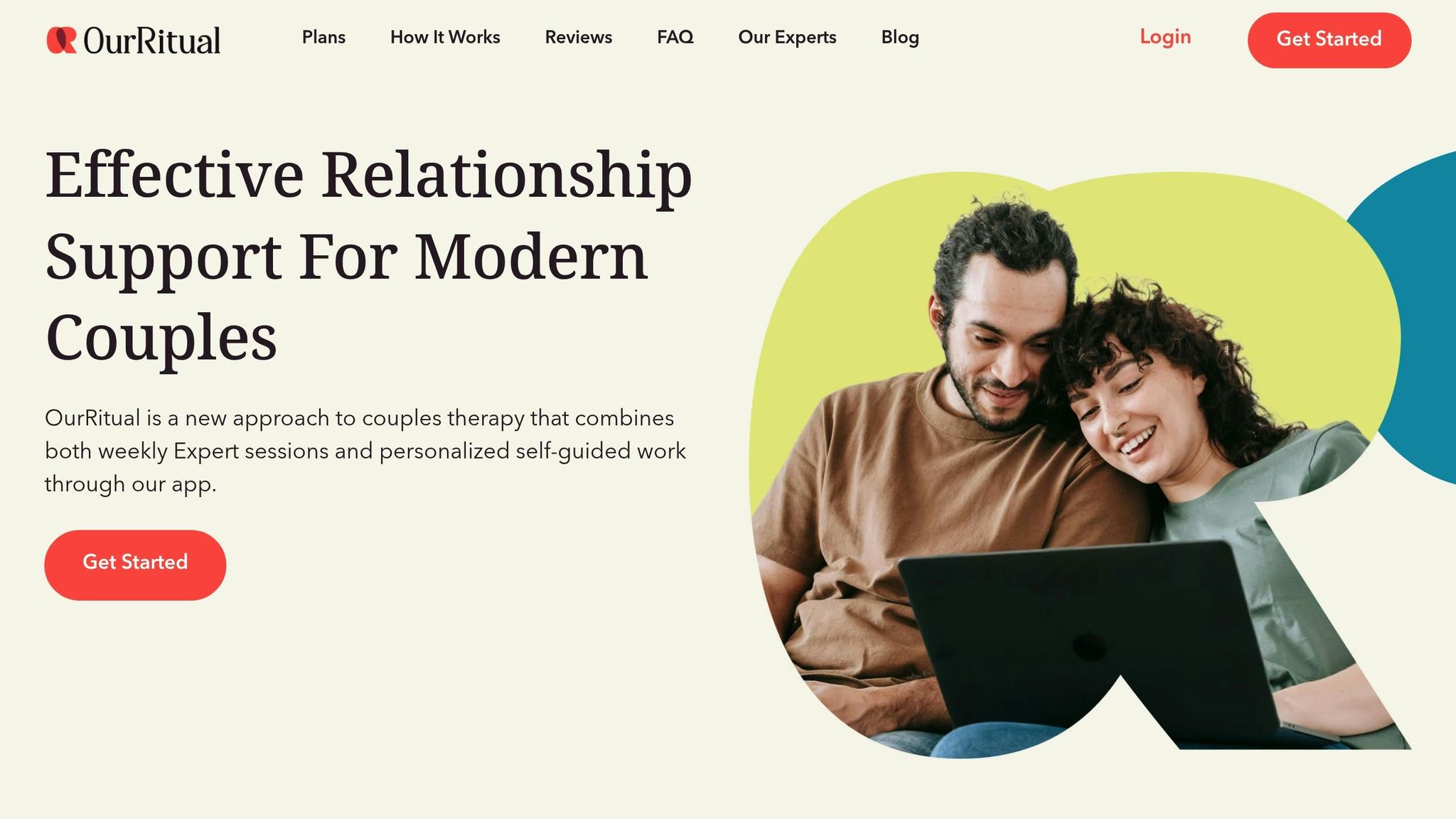
OurRitual is designed to tackle relationship burnout with weekly expert-led virtual sessions and targeted exercises. These 20–40 minute sessions are easy to fit into busy schedules, offering couples practical ways to identify issues, rebuild trust, and rediscover their strengths.
The platform provides personalized learning paths, tailoring exercises to address specific challenges like communication struggles, emotional distance, or high stress levels. Couples can join sessions together or individually, which is especially helpful when one partner is more ready to engage than the other.
The impact is clear: 91% of users report better relationships after just four weeks, 94% feel less anxious about their relationship challenges, and 88% feel more hopeful about their future together.
This flexibility and personalization make OurRitual a valuable tool for couples navigating burnout.
Tailored Support for Different Relationships
OurRitual understands that every relationship is unique, offering specialized support for various situations, including long-distance relationships, military couples, LGBTQ individuals, and parents.
Blending Digital Tools with Everyday Practices
While digital tools like OurRitual provide structure, they work best when paired with in-person practices. These tools can spark meaningful conversations and encourage couples to discuss topics they might otherwise avoid. For example, shared digital exercises can turn conflicts into opportunities for growth.
Couples can take insights from the platform and incorporate them into their daily lives. Reflecting on exercises during a meditation session, talking through thoughts over dinner, or even sharing a walk can deepen the impact of digital tools.
Additionally, digital platforms excel at helping couples track progress and stay mindful of their emotional growth. Celebrating small wins together reinforces positive habits and emotional regulation, complementing relaxation techniques.
Conclusion: Building a Path to Recovery Together
Key Points on Burnout Recovery
Recovering from emotional burnout is a journey that requires both partners to actively participate in healing and reconnecting. This can be achieved through shared relaxation practices, honest communication, and consistent effort. Together, these strategies help reduce stress, rebuild emotional closeness, and create a solid foundation for recovery.
Physical activities and mindfulness practices can bring couples closer, turning everyday moments into meaningful opportunities for connection. Tools like active listening, using “I” statements, and talking about burnout without blame all help deepen understanding. Digital platforms like OurRitual also offer structured support, with expert-led sessions designed to guide couples through a range of challenges.
Taking the First Step Forward
The next step is to start applying these practices. Recovery begins by acknowledging past pain and making space for healing. Start small. Try a simple relaxation practice together, like a 10-minute deep breathing exercise before bedtime, or engage in an activity that fosters teamwork and communication. Shared self-care routines can deepen understanding, build empathy, and strengthen your connection. Each small step matters - whether it’s expressing gratitude for your partner’s efforts or creating daily rituals that reinforce your emotional bond.
Both partners must be open to learning and growing as a team. As Mud Coaching states:
"For a long-term relationship to work, both people need to be open to learning how they can best relate to one another. Reflecting together on what you each have learned from your relationship will help build mutual respect and trust."
For those seeking more guided support, platforms like OurRitual offer personalized exercises and expert-led sessions to help couples navigate burnout. The path to recovery is within reach - it all begins with that first, brave step forward together.
FAQs
What are some effective relaxation techniques couples can use to overcome burnout and reconnect?
To tackle burnout and rekindle closeness, couples can explore practices like deep breathing exercises, progressive muscle relaxation, or mindfulness meditation. These techniques not only help lower stress levels but also encourage couples to stay fully present with one another. Sharing activities such as walking in nature, cooking meals together, or diving into new hobbies can bring a sense of connection and lighthearted enjoyment. Setting the stage with calming touches like aromatherapy or guided imagery can also create a peaceful atmosphere for unwinding.
For those seeking a more guided path to relationship growth, platforms like OurRitual provide virtual sessions led by experts, along with tailored exercises aimed at improving communication and strengthening emotional bonds.
How can couples support each other while balancing personal self-care and shared relaxation to recover from burnout?
Couples can navigate burnout together by striking a balance between personal self-care and shared moments of relaxation. Encourage each other to engage in activities that help recharge individually - whether that's reading, exercising, or simply taking time to unwind alone. Alongside this, maintain open and honest communication to share feelings, set boundaries, and ensure both partners feel heard and supported.
Spending intentional time together can also make a big difference. Whether it’s enjoying a quiet night at home or trying mindfulness exercises as a pair, these shared practices can help rebuild connection and strengthen your relationship. Regular check-ins and offering mutual encouragement can foster a sense of partnership, making the recovery journey feel less overwhelming. For couples looking for more structured support, platforms like OurRitual provide expert-led resources designed to address a variety of relationship challenges, helping partners reconnect and rebuild intimacy.
How can digital platforms like OurRitual support couples recovering from burnout?
Digital platforms such as OurRitual provide couples with practical tools to tackle burnout as a team. With expert-led virtual sessions and tailored exercises grounded in science, these platforms help couples reconnect on an emotional level, ease stress, and improve communication patterns. The tools are designed to fit seamlessly into hectic schedules, offering support without adding to the daily grind.
By promoting emotional closeness and encouraging thoughtful use of technology, platforms like OurRitual make it easier for couples to carve out meaningful moments of relaxation and support each other through the challenges of burnout.







